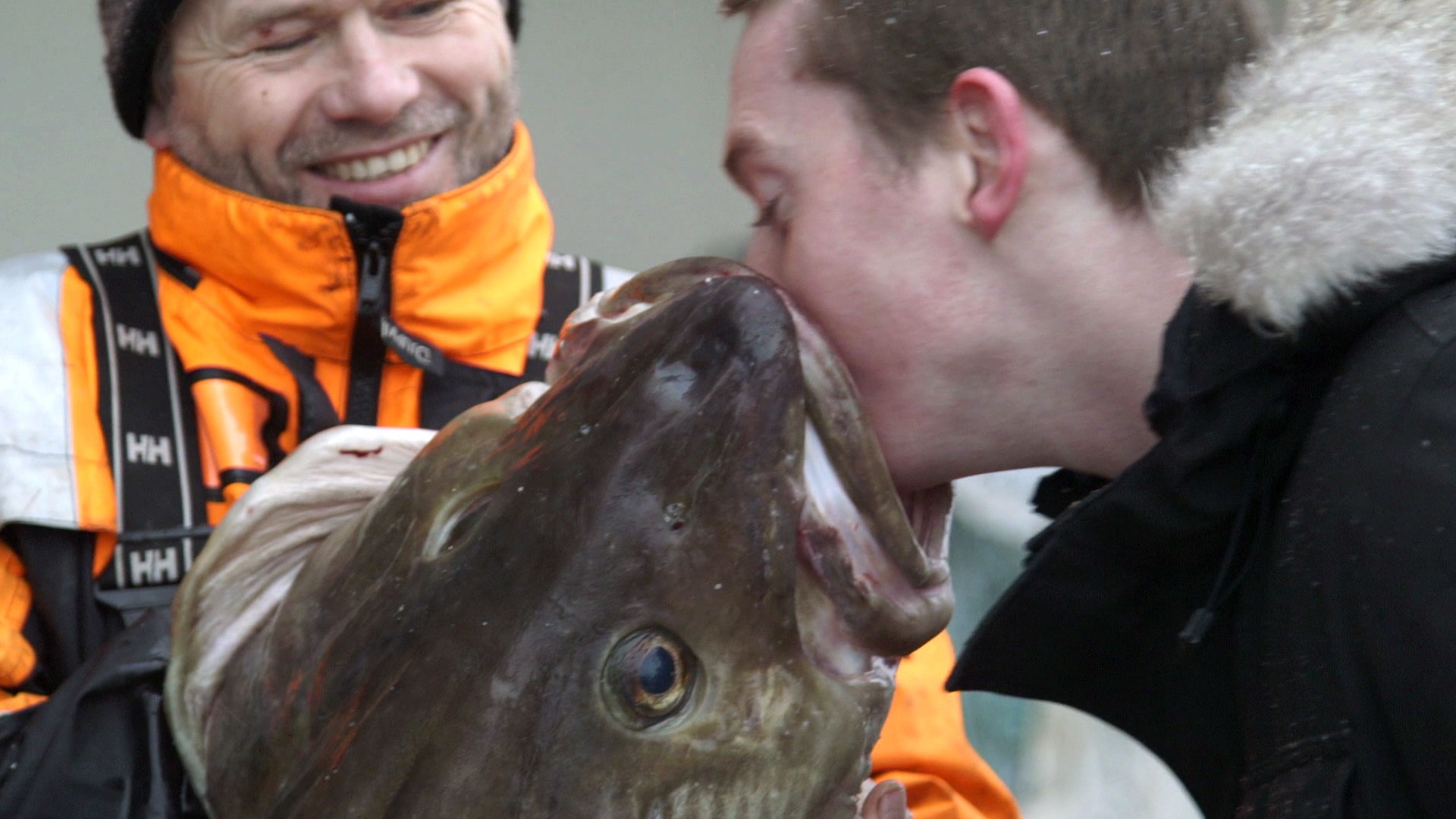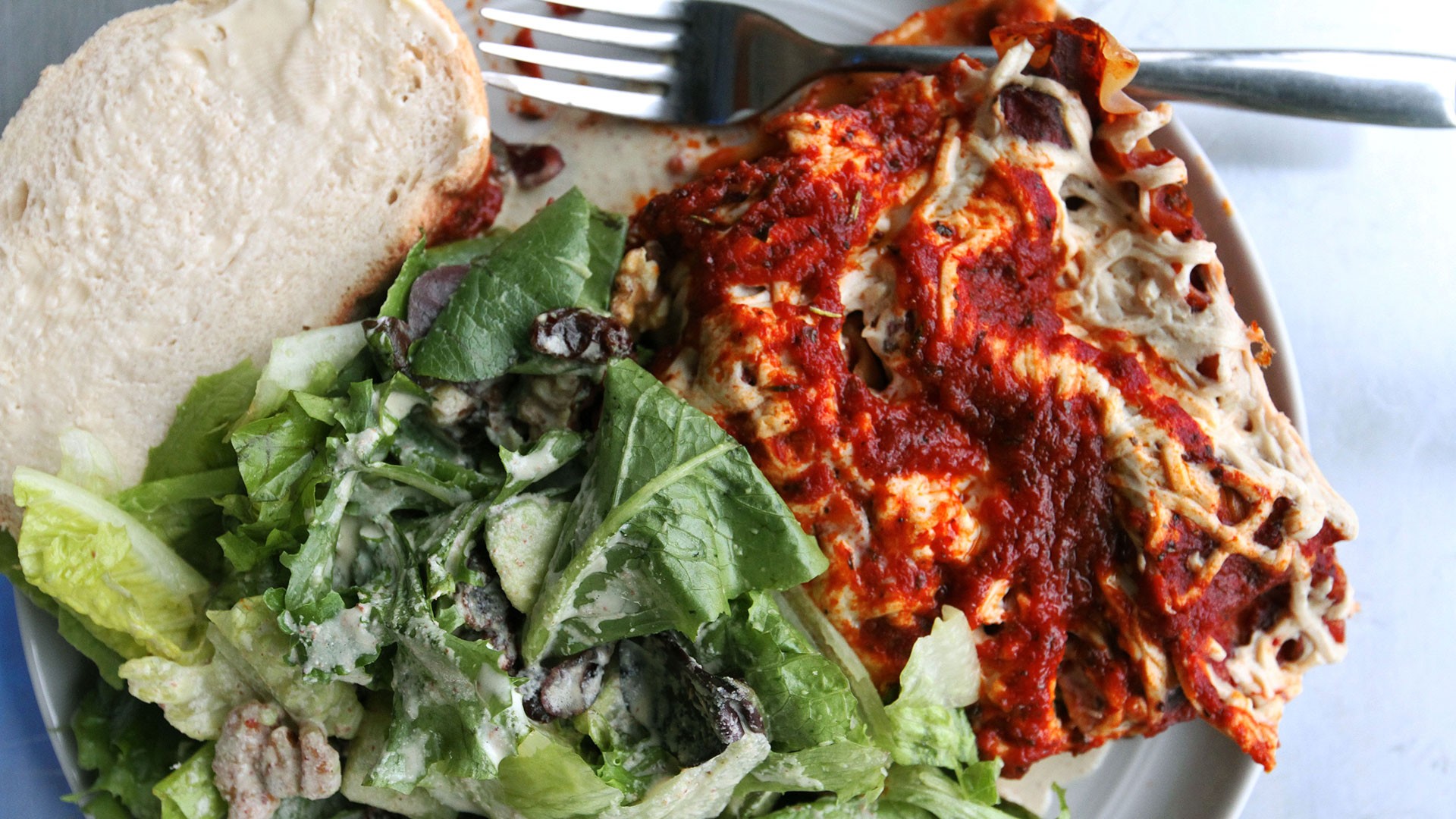The rules of veganism, at first glance, seem pretty clear: Vegans don’t consume any food derived from animals. This means forgoing not only meat, but also animal byproducts such as gelatin. The goals of veganism, however, vary from vegan to vegan—some passionately advocate animal welfare, others are fierce environmentalists, and some choose a plant-based diet for health or religious reasons. And though these goals may overlap for many, the execution of veganism is even murkier. Some vegans have no problem eating honey, or wearing secondhand leather, while others find either of these practices totally off-limits.Now, to complicate matters further, there's an entire movement dedicated to seagan eating, which argues that seafood truly belongs in a vegan diet. The seagan movement asks: As societal definitions and categorizations shift in pretty much all aspects of life, as we discover and understand more about the world, why should we blindly accept that bivalves don’t fit in a vegan diet?In the case of bivalves—that is, sea creatures with a hinged shell, such as oysters, clams, mussels, and scallops—the line between plant and animal, especially in regards to cooking and eating, remains unclear. “But, they’re alive,” someone may say who has seen the pulse of oyster flesh or the slow opening and closing of a scallop shell. But so are plants—every carrot you slice and every apple you bite into was once alive, and begins to die as it’s removed from its stem or roots. And while some bivalves, like scallops, open and close their shells by using an adductor muscle, plenty of plants can also independently move.

I, a lapsed vegetarian, first heard the argument that scallops could be considered vegan during a recent lunch at Greenpoint Fish & Lobster Co., a Brooklyn seafood restaurant dedicated to sustainability. Though a spot with fish tacos and daily oyster selections may not seem like a vegan’s first pick for dinner, co-owner Vinny Milburn told me that the restaurant has numerous vegan regulars who visit to eat scallops and other bivalves, justifying their consumption, ethically and environmentally, with science. “They feel okay about it because it doesn’t have a central nervous system,” Peter Juusola, general manager at Greenpoint Fish told me. (He was unwilling to out any of these scallop-loving vegans.)Bivalves like oysters and scallops are filter feeders, meaning they purify whatever water they’re in by eating phytoplankton, algae, and detritus, i.e. garbage. Oysters are generally farmed, rather than fished—and, if you ask Milburn, the difference between a professional who grows oysters and a farmer who grows, say, cranberries in a bog, is nominal. They both grow their product from seeds (yes, oyster "seed" is the name for the tiny larvae that farmers buy), harvest it from the water, and sell it to consumers, he clarified to me while shucking.Scallops, however, are slightly different from oysters. They also purify the waters they live in, but the methods through which they’re harvested from the ocean floor—by either divers or by rake-like dredges—can harm the ecosystems surrounding them. This reality could present an ethical issue that might turn vegans off further from eating scallops, but it also opens up a whole other series of (maybe specious) arguments about how farming certain plant crops can also wreak havoc on locals ecosystems. And thankfully, harm to the environment isn’t necessarily inherent in catching scallops.“Eating products from well-managed fisheries benefits the environment in many ways,” explains Togue Brawn of Maine-based scallop supplier Downeast Dayboat. Scallops take far less energy to produce (they produce themselves) than beef or chicken or pork, and they're not farting out methane like cattle. They're just sitting on the seafloor filtering out plankton.” In fact, all of scallops’ food comes from the water, not feed, Brawn clarifies.Several of the chefs I questioned about scallops told me they believed that eating scallops and other bivalves wasn’t different from killing plants to eat them, but also didn’t want to tell vegans what or what not to eat. Conclusive evidence on whether bivalves, or even crustaceans, for that matter, feel pain, has yet to surface, but for starters, they “do not have a brain,” Juusola says, demonstrating with his fingers that when a scallop opens and closes, that’s a reaction due to a nervous system, not their nervous system calling out pain or danger. Brawn can’t say for sure that they do not feel any pain (and sufficient research is lacking in this department), but she can share this: a scallop’s death “is damn quick.” They're certainly alive, but they're almost certainly not sentient.But even the experts, people who have dedicated their lives to studying the inner workings of sea creatures, can’t yet fully prove whether scallops and other bivalves experience pain, as it has not been extensively, if ever, comprehensively studied. “The problem with many bivalves is that they have limited behavioral options and thus pain might be of no benefit,” explains Dr. Robert Elwood, professor emeritus of Animal Behaviour at Queen's University in Belfast. In other words, there’s no evolutionary advantage for scallops and other bivalves to experience pain, as their shells close protectively due to other causes. “Scallops will move frantically, but, to my eye, erratically away from predatory starfish, but this is in response to odor. I do not know if they respond to tissue damage, but if they do, that does not indicate pain. It could be just nociception… No need to spend energy and supplies on making the neural system for pain if it provides no benefit.”Perhaps unsurprisingly, PETA does not endorse eating any type of bivalves. “We aren't sure how much pain and suffering [bivalves] are capable of feeling,” Ben Williamson, Senior International Media Director at PETA told me. “At PETA, we urge people to err on the side of compassion. Since we don't know for sure that these creatures can't suffer, we opt to assume they do and act accordingly.”Anyone who’s ever been fishing can witness the struggle of a just-hooked piece of seafood flopping and fighting to breathe through its gills—it’s an image of suffering pescatarians are willing to live with in order to eat fresh fish. Bivalves, on the other hand, don’t physically react this way; unlike, say, lobsters, they don’t have a central nervous system, and their lack of a brain means they can’t experience the type of physical pain we understand. Speculation over their physical or emotional suffering is comparable to speculating about the experience of the grapefruit you ate for breakfast. We don't know whether it suffered, but it seems unlikely given the facts.Years ago, Greenpoint Fish offered a plant-based, Thai-style kelp noodle on its menu, but ended up removing the dish because non-seagan vegans just weren’t visiting the restaurant. This, however, brings up an entirely new facet to the scallop debate—if you’re not eating wild bivalves because of bycatch (which PETA stands by as an essential problem with eating seafood), what's the justification for eating kelp and other sea plants, which are harvested from the same depleting oceans?

“Kelp is yummy and nutritious as well as the perfect way to add a ‘fishy’ flavor to chowders and fried ‘fillets,’ while eliminating all the cholesterol, hooks, nets, finning, and dismemberment involved in the use of real fish,” Williamson, on behalf of PETA, emailed me when I asked him about the organization’s stance on eating the green stuff—which, by the way, is also dredged from the ocean floor.Food writer and former vegan Alicia Kennedy still doesn’t eat meat (which she considers bad for the environment, as well as violent against animals and farmland), but has recently added bivalves to her diet, arguing that oysters are sustainably sourced and full of nutrients. Plus, eating a heap of freshly shucked oysters can be a fun, eco-friendly communal event. “There's no consciousness, so they're basically sea vegetables,” Kennedy told me of scallops. As a bivalve-eater, she no longer identifies as a vegan.“Oysters are really high in B12, a vitamin that vegans usually supplement with a pill," Kennedy tells me. "Instead of that, one could just eat oysters, the farming of which actually has a positive impact on their environment and, even, economically, as many oyster farmers are small business people. People are really attached to the labels, though, and getting murky with them (such as calling yourself a ‘veggan,’ a vegan who eats eggs) is, frankly, stupid—you're just vegetarian and that's fine."I think the definitions and rules can stay the same as far as the labels go, but perhaps people who adopt these diets for ecological reasons should be more informed about what impact certain foods have on the environment and how that can actually be positive."
Advertisement

I, a lapsed vegetarian, first heard the argument that scallops could be considered vegan during a recent lunch at Greenpoint Fish & Lobster Co., a Brooklyn seafood restaurant dedicated to sustainability. Though a spot with fish tacos and daily oyster selections may not seem like a vegan’s first pick for dinner, co-owner Vinny Milburn told me that the restaurant has numerous vegan regulars who visit to eat scallops and other bivalves, justifying their consumption, ethically and environmentally, with science. “They feel okay about it because it doesn’t have a central nervous system,” Peter Juusola, general manager at Greenpoint Fish told me. (He was unwilling to out any of these scallop-loving vegans.)
Advertisement
Advertisement
Advertisement
Advertisement

“Kelp is yummy and nutritious as well as the perfect way to add a ‘fishy’ flavor to chowders and fried ‘fillets,’ while eliminating all the cholesterol, hooks, nets, finning, and dismemberment involved in the use of real fish,” Williamson, on behalf of PETA, emailed me when I asked him about the organization’s stance on eating the green stuff—which, by the way, is also dredged from the ocean floor.Food writer and former vegan Alicia Kennedy still doesn’t eat meat (which she considers bad for the environment, as well as violent against animals and farmland), but has recently added bivalves to her diet, arguing that oysters are sustainably sourced and full of nutrients. Plus, eating a heap of freshly shucked oysters can be a fun, eco-friendly communal event. “There's no consciousness, so they're basically sea vegetables,” Kennedy told me of scallops. As a bivalve-eater, she no longer identifies as a vegan.“Oysters are really high in B12, a vitamin that vegans usually supplement with a pill," Kennedy tells me. "Instead of that, one could just eat oysters, the farming of which actually has a positive impact on their environment and, even, economically, as many oyster farmers are small business people. People are really attached to the labels, though, and getting murky with them (such as calling yourself a ‘veggan,’ a vegan who eats eggs) is, frankly, stupid—you're just vegetarian and that's fine."I think the definitions and rules can stay the same as far as the labels go, but perhaps people who adopt these diets for ecological reasons should be more informed about what impact certain foods have on the environment and how that can actually be positive."